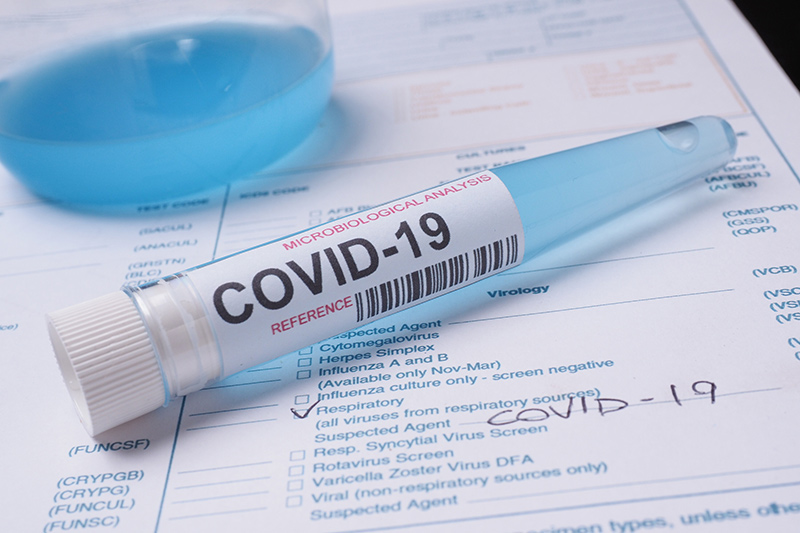Workers’ compensation is a no-fault insurance program that provides benefits to workers injured in the course their job. Medical claims review is to be professionally carried out to make sure that there is no insurance fraud involved and that the claimant is genuinely injured or ill. Now, with the COVID-19 pandemic impacting nearly every industry, workers as well their employers remain concerned about the long-term impact of the virus. A major cause for concern is how the disease complicates injured worker recoveries.
Workers’ compensation doesn’t cover communicable diseases like the flu and colds because it is difficult to prove that the disease was contracted “in the course and scope of employment.” Non-availability of coverage has not been a problem until now because the common cold and flu rarely lead to disabilities or other complications. However, COVID-19 has complicated matters because of its long-term effects, or “long Covid.” Many patients who recovered from the virus are still experiencing symptoms of different types that prevent them from working. These include blood clots in the legs, cardiomyopathies, and hair fall among others.
The Office for Civil Rights of the Department of Health and Human Services and the Civil Rights Division of the Department of Justice provided joint guidance in July 2021 regarding “long COVID,” describing it as a list of symptoms that are known to exist among COVID-19 patients who have overcome the initial infection. These symptoms include:
- Shortness of breath/difficulty breathing
- Headache
- Tiredness or fatigue
- Difficulty thinking or concentrating/brain fog
- Dizziness on standing
- Chest pain
- Cough
- Heart palpitations
- Fever
- Loss of taste or smell
- Joint or muscle pain
- Depression or anxiety
- Damage to multiple organs (lungs, heart, kidney, brain, skin)
To be eligible for workers’ compensation benefits for COVID-19, the employee must be able to prove that he/she contracted the illness from a co-worker while at work. The employee will also have to show that his/her work puts them at a greater risk of contracting the disease than the general public. Healthcare providers, first responders, bus drivers, and grocery store employees are at greater risk and may have a claim if they contract the illness.
Employees who get their initial workers’ compensation claim for COVID-19 approved, and go on to find that they have long COVID, may be able to extend the benefits. Many long COVID patients may need ongoing medical treatment including respiratory therapy, dialysis, physical therapy, and heart monitoring. If these conditions prevent them from working, they should have a strong claim to continue workers’ compensation benefits.
CDC statistics show that the return to work process may not be simple for employees who experience long COVID symptoms. They may need long-term disability benefits. Or, they may be able to return only in a part-time capacity or may need modified work. One challenge for employers is when employees have not filed a claim when they first tested positive, especially in cases of mild infection. Long COVID symptoms can arise months later and claim forms may be filed months after an initial positive test. In such cases, claim investigation could be very challenging because contact tracing requires the employee to remember activities they engaged in months and months earlier. This is very hard for patients with neurological symptoms or brain fog. So, when claims are first reported, employers must ensure that a thorough medical history is taken and special consideration is given to occupational medicine or primary care treatment to manage the claim. Depending on the symptoms, a referral to internal medicine, cardiology or pulmonary specialists may be made.
Here’s a look at the possible impact of long COVID on workers compensation, as discussed in helmsmantpa.com.
- COVID-19 claims may be distinctive, not straightforward: Since it is a new disease, not much is known about what is causing long COVID or the appearance of new symptoms. Each COVID-19 occurrence could have specific consequences on both employees and employers.
- The impact of COVID-19 workers’ compensation claims may not be known until much later: The 2020 State of the Line Guide by the NCCI (National Council on Compensation Insurance) says that there are several aspects that could easily prolong active claims. The severity of illness will determine costs ranging from low-cost medical care to treat mild symptoms to hospital stays or extended rehabilitation for more serious cases. Delayed medical care and physical therapy for other non-acute conditions may contribute to extended illness, and thereby extended claim duration and increased costs.
- Some of these COVID-19 claims could involve a mental component and may require temporary or long-term treatment.
- The long-tail nature of COVID claims could impact both recovering employees and future workers’ compensation costs of employers.
- Long COVID could pose challenges to return to work norms and employee staffing: State mandates vary and many healthcare facilities have delayed elective procedures and restricted the amount of available office appointments. This makes it difficult for employees to access medical care. Decreased staffing could result in fewer return-to-work and light-duty opportunities available. This could also prolong the length of a claim.
When evaluating a workers’ compensation claim for long COVID, medical records analysis becomes a very significant consideration. This helps in determining the validity of the claim and prevent workers’ compensation fraud and increased costs. Also, when evaluating the long-term impact of
COVID-19, employers must be aware of the various factors that play a role in impacting their workers’ compensation claims experience as they continue to deal with risk management. Employers need to handle this evolving health condition in a way similar to that in which they handle other chronic illnesses. This will help them address long COVID-19 associated disabilities proactively.




